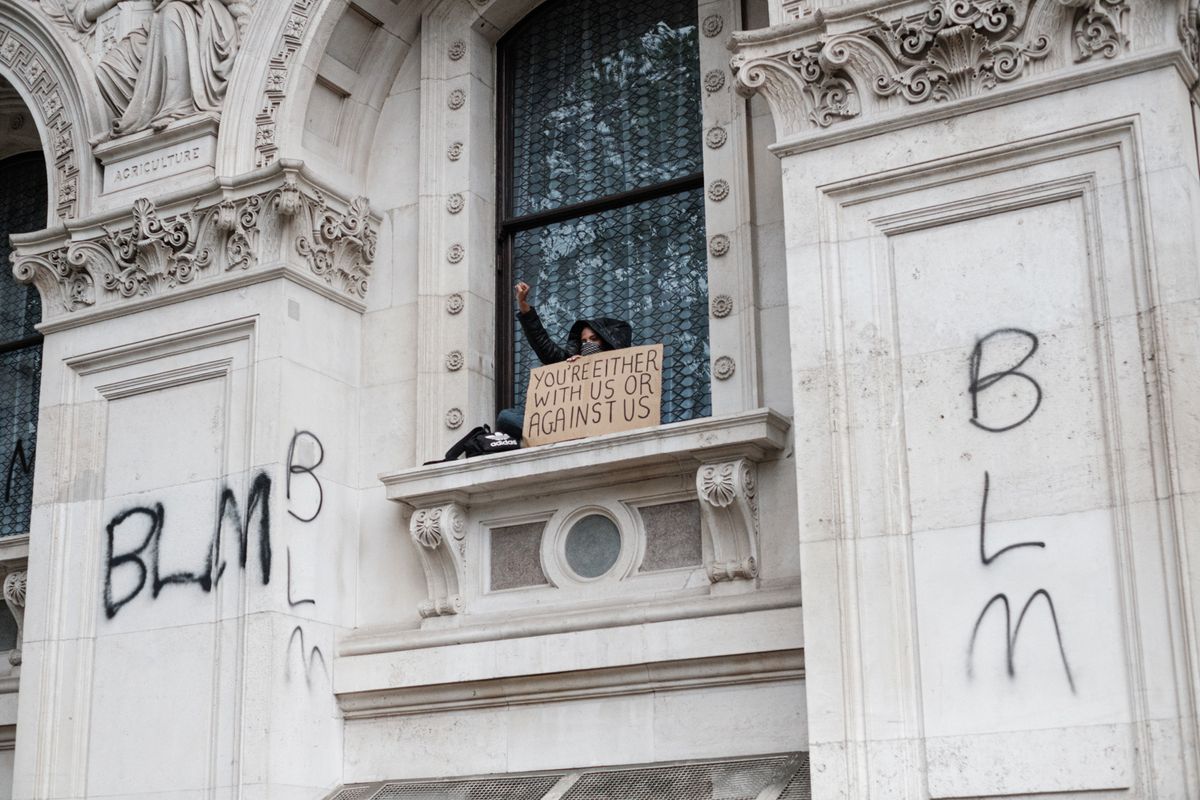What South Asians can do to support Black Lives Matter
Here's how we can tackle anti-Blackness in the South Asian community.

It's been almost six months since the death of George Floyd.
When the video of his murder surfaced earlier this year — the world paused.
Those eight minutes and forty-six seconds kickstarted a seismic course of events and catapulted the Black Lives Matter movement to the forefront. The outrage was unprecedented, sparking overdue conversations, scores of petitions, and waves of protests all over the world.
As a child, I was always told to make sure I "don't get a tan" by some within my community. Stories like this are all too common across the diaspora, with some darker-skinned South Asian women even being told that "no one will want to marry them" due to the shade of their skin.
Staying out in the sun too long was always seen as bad, not necessarily due to the risk of skin cancer. Still, because of the possibility of getting "dark", this view birthed by India's hierarchical caste system where darker-skinned Indians are usually (but not always) in the lowest social positions and face continuous discrimination.

This anti-Black sentiment permeates our culture and ultimately stems from colonialism, where Eurocentric beauty standards and fairer skin were thought to equate to superiority, and darker skin was seen as inferior. Due to this, it's unsurprising that skin lightening creams and pills remain a multi-billion dollar industry in India, with brands such as 'Fair and Lovely' previously endorsed by numerous Bollywood celebrities, such as Shahrukh Khan and Priyanka Chopra, who was challenged on her "performative activism" when she spoke out in support of Black lives. 'Dark skin' is almost invisible in Bollywood due to entrenched colourist beliefs, and when the Black community is represented, it's often in blackface and with derogatory slurs.
In the UK, so much of the South Asian cultural identity revolves around black music, fashion, arts, and culture, yet anti-blackness remains pervasive. Back in the 1970s, the term "politically Black" was coined to highlight the collective struggle of Black's and South Asians in Britain as they united and protested side-by-side.
Still, the term is redundant now, partly as we recognize the cultural nuances, but mainly as members of the black community stand with us, we don't always stand with them. The Race Relations Act of 1976 paved the way for outlawing discrimination of all ethnic minorities and was primarily championed by the actions of black people in Britain - most of the freedom we have now is indebted to the Black community.
Terms like BAME (Black Asian and Minority Ethnic) are problematic for this reason, as lumping all people of color under one umbrella term carries dangerous connotations and the false equivalency that everything we experience is the same, when in reality — it's not.
South Asians have experienced racism and prejudice still existing today, and our issues are also important and are not invalidated, but this conversation isn't about us. We have not had the same lived experiences like those in the Black community and risk contributing to this erasure.
As a community, we must have a conversation on discrimination towards the Black community and tackle the pernicious bias. Our work must go further. We must undo the anti-Blackness within our communities as a whole. To be actively anti-racist means confronting family and friends about using the N-word and the deep-rooted anti-Blackness upheld by passing comments and stereotypes, in addition to becoming conscious of the appropriation of Black culture. Whilst we continue to appropriate Black vernacular, unconsciously or not, we only help contribute to societal micro-aggressions that can potentially harm Black lives.
The discomfort at having these conversations is irrelevant and insignificant when there are Black lives in danger due to rhetoric that has been employed.
To be an ally to the Black community means doing so much more. It means educating others on colourism, stopping the usage of skin bleaching creams, signing petitions, and uplifting and amplifying black voices. It means centering their stories, experiences, and trauma instead of ours.
We are not exempt from racism just because we also face racism and discrimination of our own.
It is not our Black friends, colleagues, or acquaintances' responsibility to educate us on repositories of anti-Black racism — We must start with ourselves.
Change may start slowly, but it begins at home.


